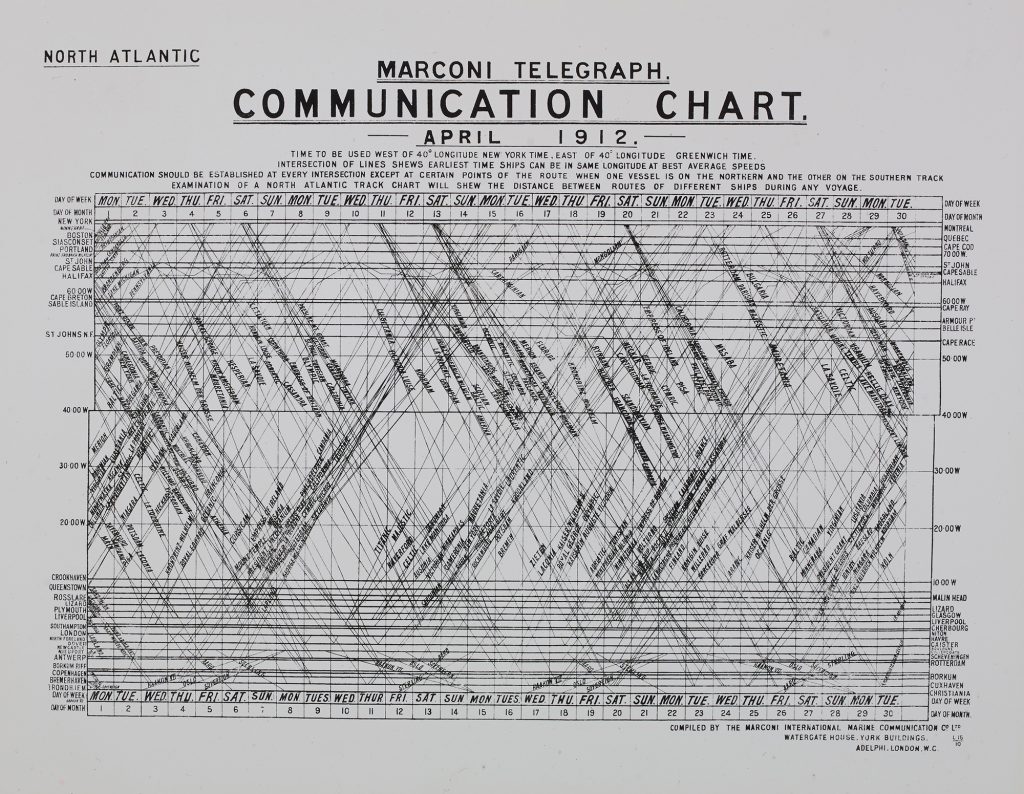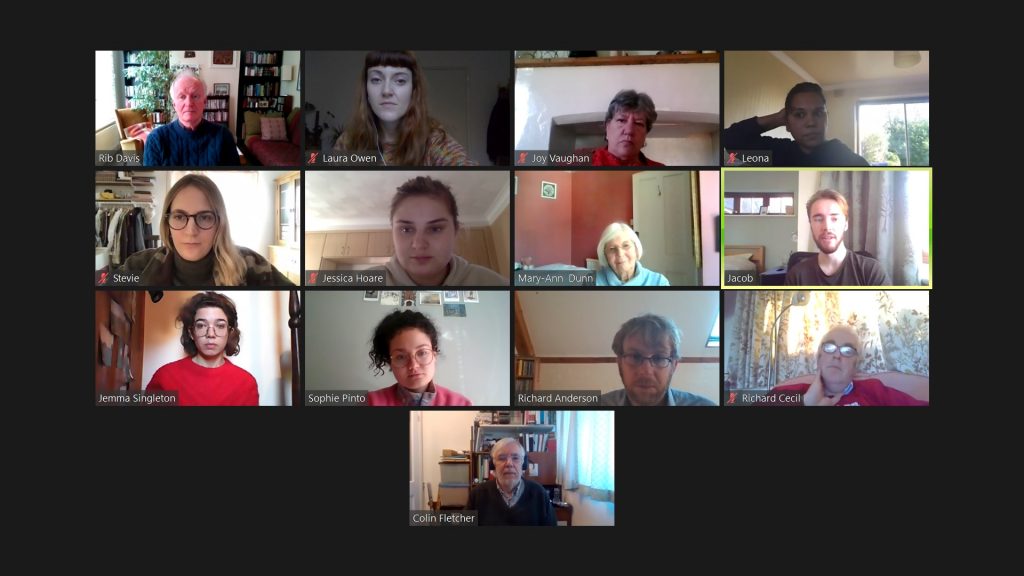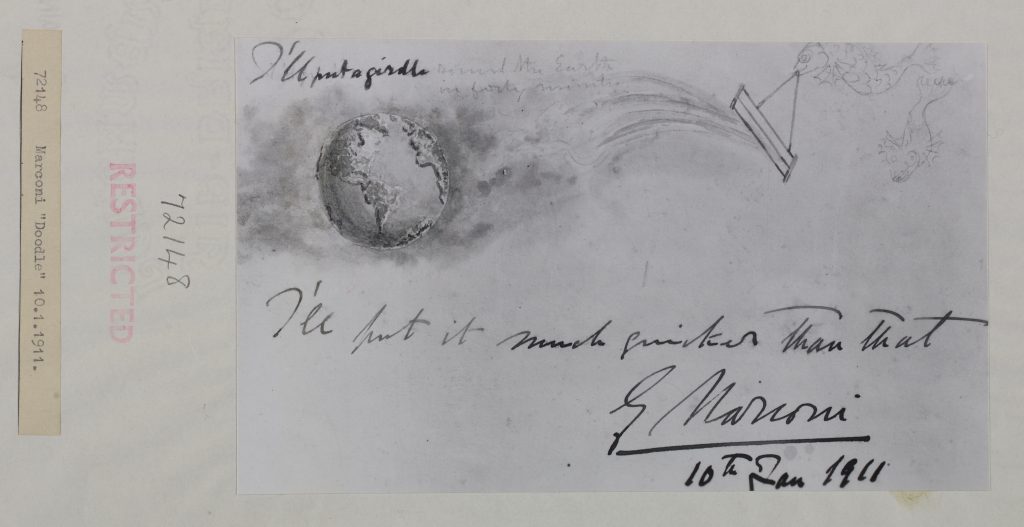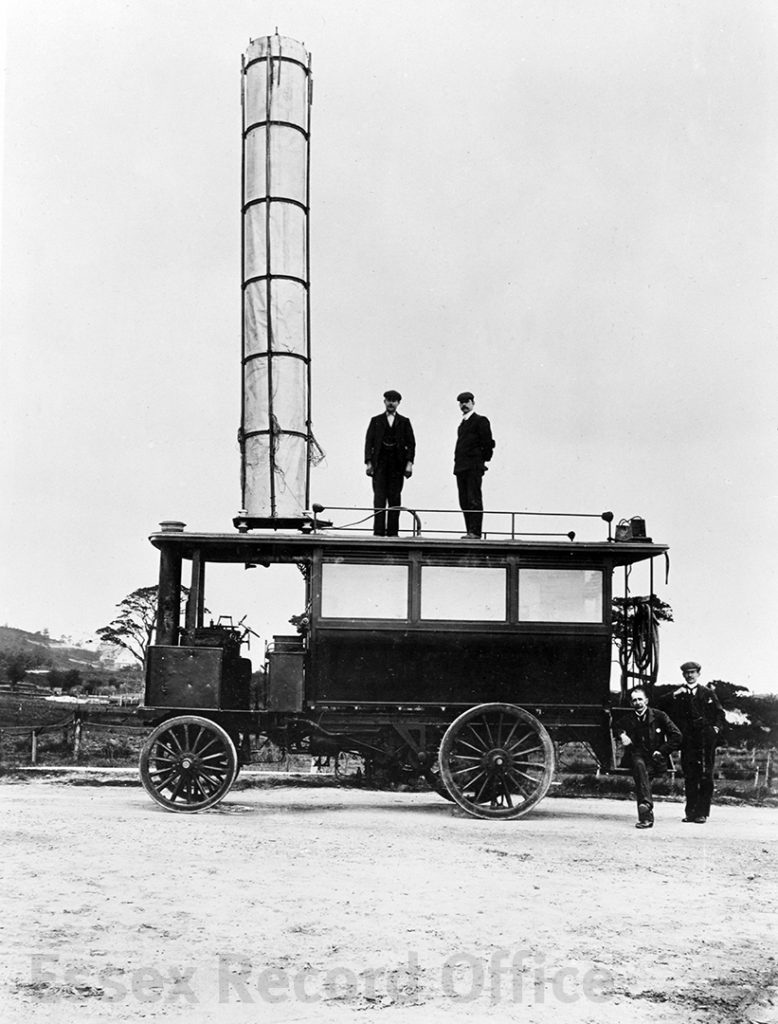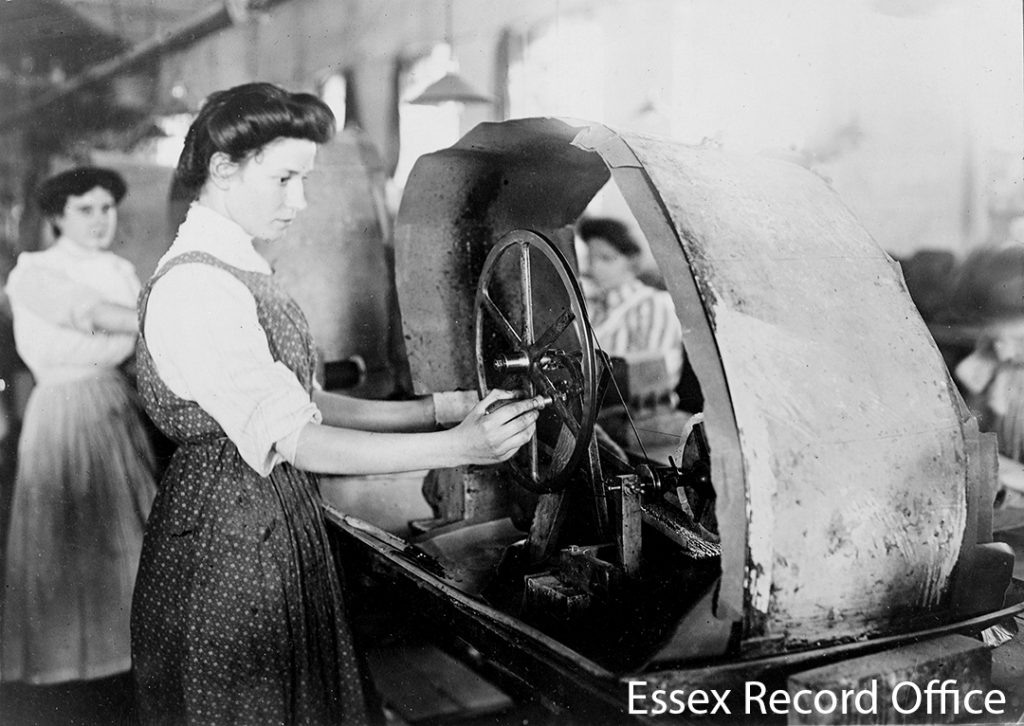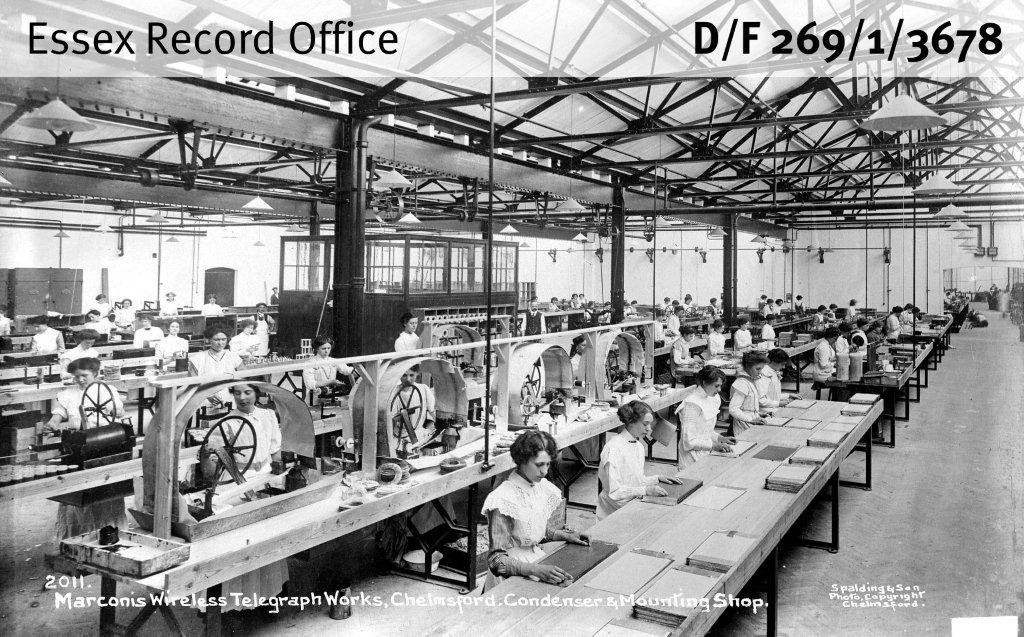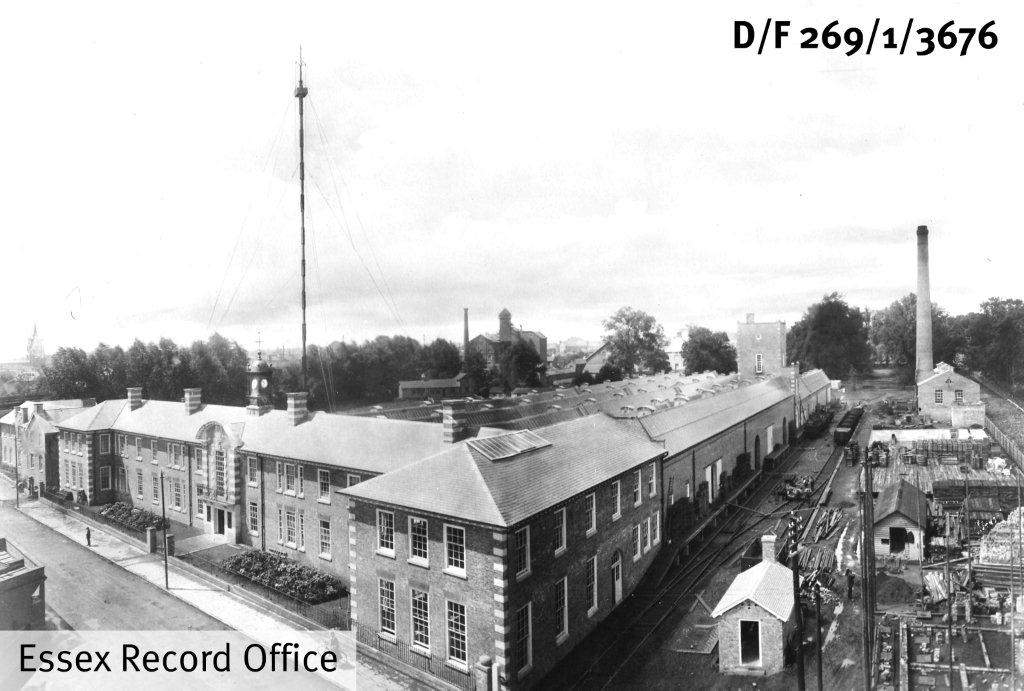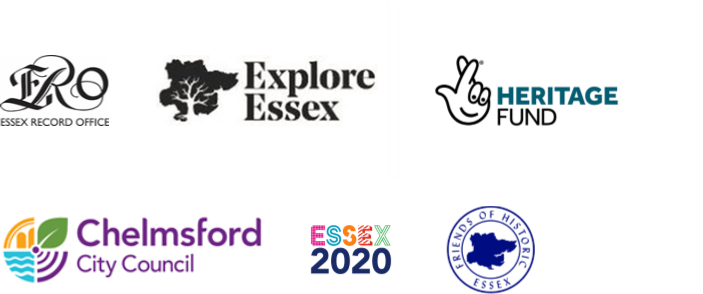We’re delighted to announce that the oral histories recorded for Communicating Connections: Sharing the Heritage of Marconi’s Wireless World are now available to explore on Essex Archives Online. You can also explore our project website, Marconi Stories, where you can learn about the project, listen to clips from the interviews and podcasts, view a gallery of digitised photographs, and download our guided walks around Marconi heritage in Chelmsford.
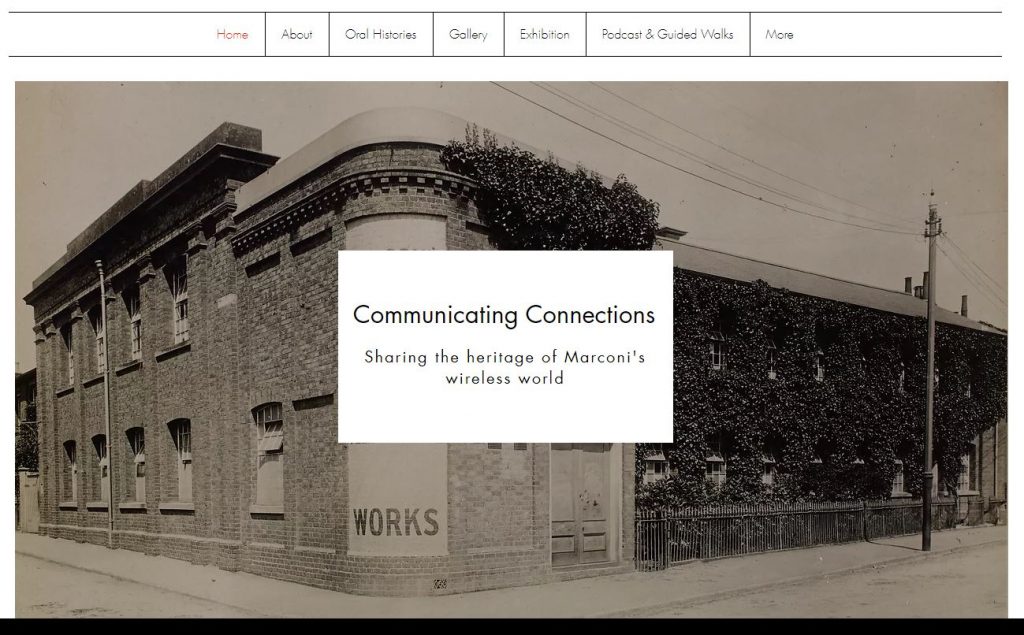
The oral histories with 30 former employees of the Marconi Company are at the heart of the Communicating Connections project. As the interviewees worked at the company in a huge range of roles from the 1950s to the 2000s, the recordings capture a real variety of experiences. Together, they add a human dimension to a story of technological innovation, and give a personal insight into how the company operated across the fields of broadcasting, telecommunications, navigation, and other wireless technologies. They also reveal how life in Chelmsford – and the fabric of the city itself – was shaped by the company. This living heritage will now be preserved in the Essex Sound and Video Archive at the ERO for future generations to learn from and enjoy.
The clips and excerpts below provide an insight into the experiences discussed in the interviews. Most of the interviewees begin by describing how they came to work at the company. Many, like Peter Farnworth, joined as apprentices. In this clip, he talks about moving into the ‘ship room’ in the hostel for apprentices on Springfield Place in 1966.
Interview with Peter Farnworth [SA 13/8/26/1]
Several female interviewees – Barbara Stephens, Joyce Allan, Maria Smith, and Val Cleare – discuss what it was like to join Marconi’s as a woman. In this clip, Barbara recalls being the only female apprentice on her course in 1974. She went on to become a trailblazer in the world of engineering.
Interview with Barbara Stephens [SA 13/8/3/1]
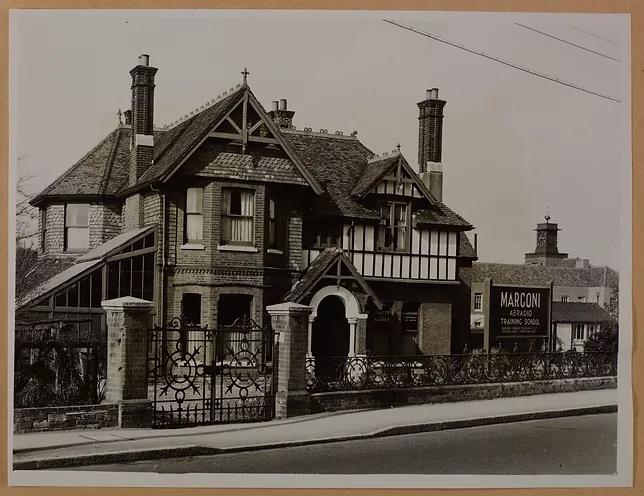
After their apprenticeships, the interviewees went on to work in various departments across the company, often progressing into management positions. Chris Denly recalls that a job at Marconi was seen as a ‘job for life’ –
“It was going to be a job for life. [It had] its own culture; we used to go on things like ‘walkabout’, where we’d go to different departments, talking to people, communicating, and seeing what everybody else was actually up to”
Interview with Chris Denly [SA 13/8/12/1]
The interviewees also explain the technology and equipment they worked with, often in great detail. In this clip, Malcolm Frost talks about his time working on the ‘Heli-tele’ system for aircraft, which they sold to the BBC so they could record television from the air.
Interview with Malcolm Frost [SA 13/8/19/1]
As the company had customers and clients all around the world, many Marconi employees travelled abroad for work, sometimes for months or even years at a time. The interviewees often recalled their travels with Marconi as a highlight of their careers. In his interview, Bob Willis listed where he’d been –
“I’ve been to Australia and South Africa. I’ve been to Japan, Korea, Taiwan. People from India and China came over to the UK. Chinese engineers came from a couple of space companies because I had a relationship with the National Physics Laboratory.”
Interview with Bob Willis [SA 13/8/6/1]
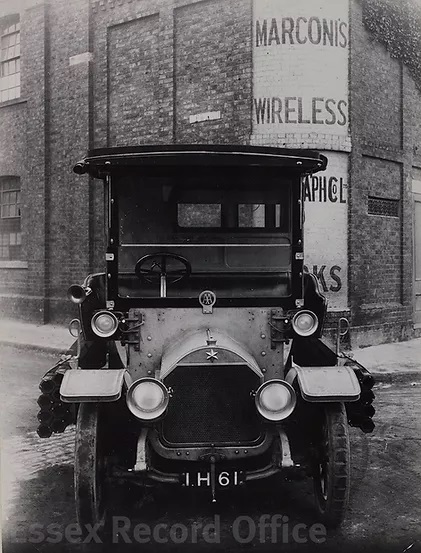
The interviewees also describe their memories of Marconi’s factories, workshops, laboratories, and training schools back home in Chelmsford, and the working atmosphere. In her interview, Maria Smith describes the importance of working together in the drawing offices. After she had her first child in 1977, she continued working for Marconi’s from home.
Interview with Maria Smith [SA 13/8/20/1]
While many of the interviewees look back on their time at Marconi’s fondly, they also discuss the challenges they faced at work and the decline of the company from the 1990s. Cyril Teed worked at Marconi’s for 15 years before moving to be Chief Engineer at ITN. In this clip, he describes the changes that had occurred at Marconi’s when he returned three years later.
Interview with Cyril Teed [SA 13/8/14/1]
Like Cyril, Martyn Clarke also took part in the social side of working at Marconi’s. Here, he talks about reviewing films for the monthly Marconi magazine and making a pirate-themed float for Chelmsford Carnival.
Interview with Martyn Clarke [SA 13/8/21/1]
At the end of the interviews, many of the interviewees reflect on the friendships they made, and note that they remain in touch with people they met through work – even as apprentices back in the 1950s.
“I still dream that I’m back working at Marconi’s in New Street. I don’t dream about working [elsewhere], where I worked for three times the length of time. It was a special company, it worked in a special way. And lots of friendships were made and survive to this day.”
Interview with Mike Plant [SA 13/8/25/1]
Each of the interviews recorded through the project is now available to browse on our catalogue here. You can listen to most of the interviews on Essex Archives Online, and some of the clips featured above on our Marconi radio in the Searchroom.
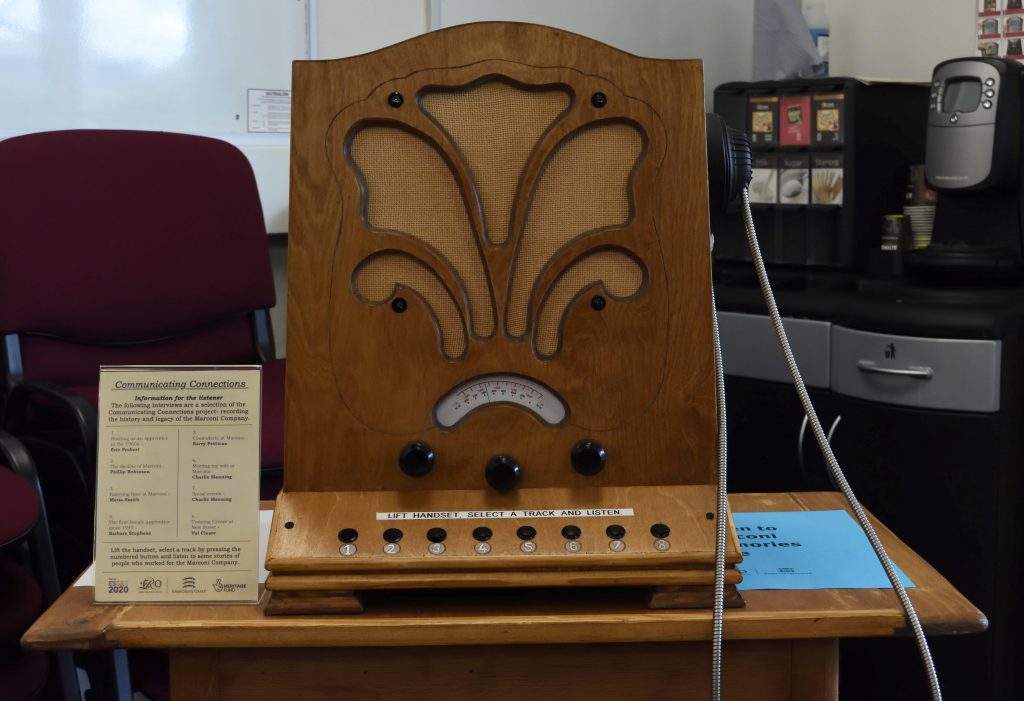
Thank you to everyone who has been involved since the start of the project in August 2020: all of the interviewees; the volunteer interviewers and podcasters; the project co-ordinator, Laura Owen; and our evaluator, Pippa Smith. We are also grateful for the support of the National Lottery Heritage Fund and Essex 2020.
Read previous blog posts about the project here:

